Senato
The L’Archivio di Stato di Venezia: indice generale, storico, descrittivo ed analitico by Andrea Da Mosto was published in 1937. Besides being a general index of the holdings of Venetian documents in the state archive, it contains short historical descriptions of most Venetian offices and magistracies.
Andrea Da Mosto (1868-1960) was director of the Archivio di Stato di Venezia (1936-1937).
Two reasons, according to the majority of historians, pushed the Venetian Republic to the creation of the Senate. The continued dominance within the Republic of the aristocratic party and the increased necessities of government in a dominion that extended incessantly. If this is the case, there is no need to go looking for origins and connections of the new body in a pre-existing council of the Doge. The new organism had a very different vitality and different functions.
The oldest chroniclers indicate 1229 as the date of birth of Senate. Although it is not illogical to bring forward the date — as some do — the tradition may appear certain and strengthened from some facts; for example, by the lack of mention of the Rogati in a law of 1207 and in the promissione of Tiepolo of 1229.
At the time of its establishment, the Council of the Pregadi or Rogati (the name Senate came into use at the end of the 14th century due to humanistic influences) was composed of sixty members elected annually. But the Venetian government’s custom of delegating the handling of certain political or economic affairs to special commissions led to an increase in the number of Senators. In fact, the Zonta arose from one of these commissions.1 First composed of twenty members (17 November 1363), it increased to forty in the times of Michiel Steno (21 May 1413) and to sixty under the rule of Francesco Foscari (1450). Renewed by special decree from year to year it became ordinary and permanent on 29 September 1506.
The sixty and the Zonta were therefore the elective members of the Senate. But numerous other magistrates of the Republic, ex officio, contributed to its formation by virtue of the office they held, or which they had held in the past.
Indeed, the Doge and his advisors, superiors and inferiors, even after leaving office; the entire Quarantia, merged with the Senate senselessly, so as to form with this, as appears in the decree of 21 December 1324, unum corpus et unum consilium, and the Council of Ten (definitively in 1321).
The judicial and legislative functions of the Senate justify the entry granted to the Avogadori di Comun (2 July 1293); the economic functions, however, justify the same privilege granted to the Ufficiali al Cattaver (26 January 1281), to the Superintendents of Comun (28 February 1312), to the Provveditori alle Biave (6 July 1365), to the Officiales Officiorum Rationum, i.e. the Ufficiali alle Rason Vecchie e Nuove, to the Provveditori sopra Camere and to the Superintendents above Offices (all 29 May 1410); to the Provveditori al Sal (6 June 1428), to the Governors of the Revenue (3 August 1433), to Savi sopra i Procuratori (1 December 1452), to the Procuratori di San Marco (17 February 1454), to the Camerlenghi di Comun (1st October 1454), to the Tre Savi in Rialto (7 January 1472), to the Savi sopra le decime (15 November 1477), to the Ufficiali alle Cazude (26 January 1481), to the Cassieri del Collegio (9 January 1484), to the Provveditori sopra gli atti dei Gastaldi (11 November 1484), ai Provveditori al Polesine (24 November 1486), to the Provveditori alla Doana da Mar (6 December 1487), to the Provveditori alla Camera degli Imprestiti (16 July 1489), to the Provveditori sopra dazi (4 May 1501), to the Provveditori sopra banchi (12 June 1524), to the Savi sopra la revisione dei conti (22 March 1528), to Ufficiali alla Camera degli imprestiti (22 July 1557).
Since the direction of navigation and trade was entrusted to the Senate, the Sopraconsoli (until 1319), the officiali de navigantibus per i brevi periodi di tempo (1324-’25, 1331-’38, 1361-’63) in which they served, the Cinque Savi alla Mercanzia (19 February 1515), the Provveditori sopra i cottimi (18 January 1521), the Savi e gli Esecutori alle acque (30 December 1530 and 18 January 1531), the Provveditori agli Uffici e cose del Regno di Cipro (24 September 1531).
The attributions, then, of military matters justify the inclusions of the Patroni all’Arsenal (19 July 1444), dei Provveditori alle legne (20 May 1460), of the Provveditori all’Arsenal (26 January 1516), of the Provveditori sopra l’Armar (1st March 1519), and those of the Castellani di Brescia, of San Felice di Verona (14 June 1573), of the Chapel of Bergamo (7 April 1676), of the Provveditori della Suda (27 September 1573), of Spinalunga and delle Grabuse, of the Rectors of Vicenza and Verona and of the Capitani generali da Mar on their return.
The jurisdiction of the Senate as overseer of education e of public morality and its role as the main body of ecclesiastical politics justifies another group of aggregations: those of the Provveditori alle Pompe (17 November 1476), the Riformatori dello Studio di Padova (28 August 1517), of the Censors (8 October 1524), of the Provveditori sopra Monasteri (31 May 1536).
For expertise relating to the material well-being of the city the Provveditori alla Sanità were appropriately brought together (7 January 1486) and the Provveditori delle vittuaglie (2 August 1528). Finally, Ambassadors had temporary entry into the Senate, from the day of appointment to the day of departure, and, after their return, until the following Michaelmas. That way they were informed on the politics of the Republic and they enlightened the Senate on the conditions of the country where they had exercised their duties.
Extrinsic reasons, however, justified entry into the Senate of the Doge’s children and grandchildren who had turned thirty years old (11 August 1473); the privilege, extended to brothers, was restricted on August 19, 1623 to one brother and one only son; in the absence of these the right of entry to a nephew by a brother (21 August 1722); then to two (28 May 1762); finally to his two eldest sons (16 April 1763).
Of another nature are the inclusion of nobles who had lent a certain sum to the State, loans made during the Cambrai war. Here we can only talk about inclusion in a certain sense. There were two in 1510 and another in 1525. But when times became calmer the provision was revoked (11 May 1531).
The members of the Senate did not have equal rights within the assembly. In this respect they can be divided into four categories: those who could por ballota (vote) and por parte2 (make proposals), those who had only one of these rights e those who had none.
The powers of the Senate must be divided into two groups: by its own authority and by delegation.
In the 13th century, the former are limited and precise: it monitors commerce and navigation; judges on the infringement of laws by individual officials, on the embezzlements of public money, and, even before the Council of Ten was established, on betrayals and crimes against the State.
Much more interesting is the latter group of powers, i.e that by delegation. It is precisely, on the basis of this, that the Senate became the supreme body of the State or, as it was said, the soul of the Republic. The numerous delegations on political matters, which occurred during the 13th century ended with giving the Senate supreme authority in this field; And precedents of the power acquired later in the legislative and financial matters can still be found in similar resolutions of this century and of the fourteenth. Sometimes there’s a play on misunderstandings, on incorrect interpretations, which custom legitimises and consolidates.
In the following century, other important decisions were entrusted to the Senate: the granting of Venetian citizenship by privilege (18 September 1323), the drafting of commendatory letters to the Pontiff (14 October 1324), matters of the reprisals of foreigners on Venetian ships (8 November 1327), war (14 November 1363), the inspection of the armed levies in the dominions (19 December 1381), customs and levies on the mainland (9 May 1389). And the importance and breadth of its functions increase over the subsequent centuries; the opposition that other organs offer, especially the Council of Ten, is always, ultimately, victoriously overcome.
The senate was furthermore entrusted with the supreme supervision of the ecclesiastical assets (24 October 1412), supervision (here we are talking about confirmation) on monetary circulation and the mint (1416), and the 12th December 1427, with the abolition of the second Consiglio dei Cento, the senate was attributed the same powers that it had in financial matters. This decree served, aptly interpreted, to concentrate in the Senate the financial administration of the State.
Judicial reforms were entrusted to the senate on October 16, 1429.3 Later it had the care of the Sindacato inquisitoriale sulle provincie di terra ferma (5 October 1432) and that of the defence of Orzinuovi, Palazzolo and Martinengo (13 February 1435). It was later entrusted with providing for the good functioning of the Camera degli imprestiti (22 December 1443), the correction of the criminal laws (28 November 1445) with the power to banish criminals from the State (1486), the appeals of patrons of the Galleys against the captains (6 March 1446), the exclusive right to maintain relations with foreigners (8 February 1447), of provide for fortresses and castles when wars were expected (16 December 1450), the power to elect Provveditori alle fortezze ed alle terre dei domini da mar e di terra ferma; deliberation on the matter of reprisals (7 September 1456), health matters (1 July 1466), the care of public money intended for biave, for the Arsenal and for armaments (11 May 1467). Even if this last competence over public money didn’t have the importance that some assigned to it is true that, in the second half of the fourteenth century, the Senate already had the maximum authority in such affairs, and «that this gave it the first place in the political life of…. Venice”. Numerous subsequent attributions to that decree of 1467 are nothing but determinations and specifications of that broader and more general authority and we can do without listing them. We will remember, however, a decree of the 30th March 1515, which delegated to the Senate the surveillance of the waterways, a very important matter for the very life of the city and that, only up to a certain point, falls within the competences of an economic character. And it is also appropriate here to remember how to Senate was entrusted with the supervision of the artisans’ guilds and of the charities, with the exception of the six great schools which were subject to the Council of Ten.
But to complete this succinct exposition it is necessary to know the magistracies, which were elected in the Senate. It will result in a more accurate picture of its competences.
The senate elected the extraordinary magistracies: provveditori, inquisitors, superintendents, mayors, etc.
Among the ordinary positions the senate nominated Ambassadors e residents, and some provveditori like those of Dalmatia, of Cividale, of Palmanova, of Corfù, Zante, Cefalonia. Elected the savi del Consiglio, agli Ordini, and di Terra ferma, the Revisori e Regolatori delle entrate pubbliche, the Provveditori e Aggiunti sopra danari, the Deputati e Aggiunti alla provvisione del danaro, the Esecutori delle deliberazioni del Senato, the Revisori e Regolatori dei dazi, the Depositario and the Provveditori of the mint, the Conservatore al deposito, the Depositario del banco giro, the Sopraintendenti alle decime del clero, the Inquisitore alle appuntature, the Savi e Aggiunti alle acque, the Sopraprovveditori alle biave, the Provveditori sopra i beni comunali, and those sopra beni inculti, sopra feudi, sopra monti, sopra le valli del Dogado, sopra gli ori e monete, sopra gli ori e argenti, the 5 Savi alla mercanzia, the Deputati al commercio, the Provveditori alla giustizia nuova, the Sopraprovveditori alla giustizia vecchia, the Provveditori agli oli, and of the beccarie, the Regolatori alle tariffe mercantili, the Inquisitore alle arti, the Riformatori dello studio di Padova, the Esecutori contro la bestemmia, the Bibliotecario della biblioteca pubblica, the Provveditori sopramonasteri, the Sopraprovveditori alle pompe, the Savi contro l’eresia, the Conservatori delle leggi, the Presidenti ed Aggiunti al sommario delle leggi, the Provveditori e Aggiunti alla sanità, and those of the hospitals, the Deputati ad pias causas, the Provveditori ed Aggiunti all’armar, all’arsenal, alle legne, the Presidenti ed Aggiunti alla Milizia da mar, the Inquisitori ai ruoli, the Provveditori sopra le artiglierie, sopra le fortezze pubbliche, and sopra le galere dei condannati, the Inquisitori all’arsenal, the Provveditori sopra privilegi, those sopra la Camera dei confini. Nominated, finally, the professors of the University of Padova, its own secretaries and those of the Consiglio dei X, and the nominations of the Patriarch, of the bishops and of the prelates of the above-mentioned places, depended on the senate.
Translator’s notes
- The Venetian Zonta — Italian aggiunta — means adjunct, as in added later. ↩︎
- For the use of the word parte, see Però l’anderà parte — vadit pars. ↩︎
- I have not translated the titles of all the offices or positions, as it would be equally unintelligible, and just cause confusion. Many of these offices are listed in State institutions of the Republic of Venice at the end. ↩︎
Original Italian text
SENATO
Due motivi, secondo la maggioranza degli storici, spinsero la Repubblica Veneta alla creazione del Senato. L’affermarsi continuo in seno ad essa del partito aristocratico e le aumentate necessità di governo in un dominio che si estendeva senza posa. Se così è, non occorre andar cercando derivazioni e addentellati dell’organo nuovo in un preesistente consiglio del Doge. Il nuovo organismo ebbe ben altra vitalità e diverse funzioni.
I cronisti più antichi indicano il 1229 come data di nascita del Senato. Per quanto non sia illogico anticipare la data — come alcuni fanno —, la tradizione può apparire assicurata e rafforzata da alcuni fatti; ad esempio, dalla mancanza di menzione dei Rogati in una legge del 1207 e nella promissione del Tiepolo del 1229.
Al momento della sua costituzione, il Consiglio dei Pregadi o Rogati (il nome di Senato venne in uso alla fine del secolo XIV per influenze umanistiche) fu composto di sessanta membri elettivi ed annuali. Ma la consuetudine del governo veneziano di delegare a speciali commissioni la trattazione di determinati affari politici od economici portò ad un aumento del numero dei Senatori. Infatti da una di tali commissioni sorse la Zonta. Composta dapprima di venti membri (17 novembre 1363) si accrebbe a quaranta ai tempi di Michiel Steno (21 maggio 1413) e a sessanta sotto il dogado di Francesco Foscari (1450). Rinnovata con speciale decreto di anno in anno divenne ordinaria e perpetua il 29 settembre 1506.
I sessanta e la Zonta erano dunque i membri elettivi del Senato. Ma concorrevano a formarlo numerosi altri magistrati della Repubblica, ex officio, per ragione della carica che ricoprivano, o che avevano già ricoperta.
Anzi tutto il Doge ed i suoi Consiglieri, superiori ed inferiori, anche dopo usciti di carica; per intero la Quarantia, fusasi addirittura col Senato insensibilmente, sì da formare con questo, come appare dalla parte 21 dicembre 1324, unum corpus et unum consilium, e il Consiglio dei Dieci (definitivamente nel 1321).
Le funzioni giudiziarie e legislative del Senato giustificano l’ingresso accordato agli Avogadori di Comun (2 luglio 1293); quelle economiche, invece, danno ragione dell’uguale facoltà accordata agli Ufficiali al Cattaver (26 gennaio 1281), ai Provveditori di Comun (28 febbraio 1312), ai Provveditori alle Biave (6 luglio 1365), agli Officiales Officiorum Rationum, cioè gli Ufficiali alle Rason Vecchie e Nuove, ai Provveditori sopra Camere ed ai Provveditori sopra Uffici (tutti il 29 maggio 1410); ai Provveditori al Sal (6 giugno 1428), ai Governatori delle Entrate (3 agosto 1433), ai Savi sopra i Procuratori (1° dicembre 1452), ai Procuratori di San Marco (17 febbraio 1454), ai Camerlenghi di Comun (1° ottobre 1454), ai Tre Savi in Rialto (7 gennaio 1472), ai Savi sopra le decime (15 novembre 1477), agli Ufficiali alle Cazude (26 gennaio 1481), ai Cassieri del Collegio (9 gennaio 1484), ai Provveditori sopra gli atti dei Gastaldi (11 novembre 1484), ai Provveditori al Polesine (24 novembre 1486), ai Provveditori alla Doana da Mar (6 dicembre 1487), ai Provveditori alla Camera degli Imprestiti (16 luglio 1489), ai Provveditori sopra dazi (4 maggio 1501), ai Provveditori sopra banchi (12 giugno 1524), ai Savi sopra la revisione dei conti (22 marzo 1528), agli Ufficiali alla Camera degli imprestiti (22 luglio 1557).
Per essere al Senato affidata la direzione della navigazione e dei commerci, vi partecipavano i Sopraconsoli (fino al 1319), gli officiali de navigantibus per i brevi periodi di tempo (1324-’25, 1331-’38, 1361-’63) nei quali furono in vita, i Cinque Savi alla Mercanzia (19 febbraio 1515), i Provveditori sopra i cottimi (18 gennaio 1521), i Savi e gli Esecutori alle acque (30 dicembre 1530 e 18 gennaio 1531), i Provveditori agli Uffici e cose del Regno di Cipro (24 settembre 1531).
Le attribuzioni, poi, in materia militare giustificano l’aggregazione dei Patroni all’Arsenal (19 luglio 1444), dei Provveditori alle legne (20 maggio 1460), dei Provveditori all’Arsenal (26 gennaio 1516), dei Provveditori sopra l’Armar (1° marzo 1519), e quelle dei Castellani di Brescia, di San Felice di Verona (14 giugno 1573), della Cappella di Bergamo (7 aprile 1676), dei Provveditori della Suda (27 settembre 1573), di Spinalunga e delle Grabuse, dei Rettori di Vicenza e di Verona e dei Capitani generali da Mar al loro ritorno.
La competenza del Senato come sorvegliante dell’istruzione e della moralità pubblica e la sua veste di organo principale della politica ecclesiastica giustifica un altro gruppo di aggregazioni: quelle dei Provveditori alle Pompe (17 novembre 1476), dei Riformatori dello Studio di Padova (28 agosto 1517), dei Censori (8 ottobre 1524), dei Provveditori sopra Monasteri (31 maggio 1536).
Per la competenza relativa al benessere materiale della città vennero opportunamente aggregati i Provveditori alla Sanità (7 gennaio 1486) e i Provveditori delle vittuaglie (2 agosto 1528). Avevano, infine, ingresso temporaneo in Senato gli Ambasciatori, dal giorno della nomina a quello della partenza, e, dopo il loro ritorno, fino al successivo San Michele. Venivano così essi informati della politica della Repubblica ed illuminavano il Senato sulle condizioni del paese presso cui avevano esercitato le loro funzioni.
Ragioni estrinseche, invece, giustificarono l’ingresso in Senato dei figli e dei nipoti del Doge che avessero compiuto i trenta anni (11 agosto 1473); il privilegio, esteso ai fratelli, fu ristretto il 19 agosto 1623 ad un solo fratello ed a un solo figlio; in mancanza di questi fu riconosciuto il diritto di ingresso ad un nipote ex fratre (21 agosto 1722); poi a due (28 maggio 1762); infine ai suoi due figli maggiori (16 aprile 1763).
Natura diversa da queste hanno le aggregazioni di nobili che avessero prestato una certa somma allo Stato, fatte durante la guerra di Cambrai. Qui di aggregazioni può solo parlarsi per intenderci. Se ne ebbero due nel 1510 ed un’altra nel 1525. Ma tornati tempi più tranquilli il provvedimento fu revocato (11 maggio 1531).
I membri del Senato non avevano uguali diritti in seno all’assemblea. A questo riguardo essi possono essere divisi in quattro categorie: quelli che potevano por ballotta (votare) e por parte (fare proposte), quelli che avevano una sola di tali facoltà e quelli che non ne avevano alcuna.
Le attribuzioni del Senato vanno distinte in due gruppi: per autorità propria e per delegazione.
Nel secolo XIII, le prime sono limitate e precise: invigila sul commercio e sulla navigazione; giudica sulle lesioni dei capitolari per parte dei singoli officiali, sulle malversazioni del denaro pubblico, e, prima ancora che fosse costituito il Consiglio dei Dieci, su tradimenti e delitti contro lo Stato.
Assai più interessante è il secondo gruppo di competenze, cioè quello per delegazione. E’ appunto, in base a questo, che il Senato diviene l’organo supremo dello Stato o, come fu detto, l’anima della Repubblica. Le numerose delegazioni in materia politica, avvenute durante il corso del secoloXIII finirono col conferire al Senato la suprema autorità in questo campo; e precedenti del potere acquistato in seguito nella materia legislativa ed in quella finanziaria si rintracciano ancora in analoghe deliberazioni di questo secolo e del decimoquarto. Si giuoca a volte sull’equivoco, si tratta spesso di errate interpretazioni, che la consuetudine legittima e consolida.
Nel secolo successivo si affidano al Senato altre importanti materie: la concessione della cittadinanza veneta per privilegio (18 settembre 1323), la redazione delle lettere commendatizie al Pontefice (14 ottobre 1324), la materia delle rappresaglie di stranieri su legni veneti (8 novembre 1327), la guerra (14 novembre 1363), l’ispezione sulle leve armate nei dominii (19 dicembre 1381), i dazi di terra ferma (9 maggio 1389). E l’importanza e l’ampiezza delle sue funzioni si accrescono nei secoli successivi; il contrasto che vi fanno altri organi, specie il Consiglio dei Dieci, è sempre, in fondo, vittoriosamente superato.
Gli si affidò ancora, la sorveglianza suprema sui beni ecclesiastici (24 ottobre 1412), quella (si tratta qui di conferma) sulla circolazione monetaria e sulla zecca (1416), e il 12 dicembre 1427, abolendosi il secondo Consiglio dei Cento gli si attribuì la stessa facoltà che quello aveva in materia finanziaria. Questa parte servì, duttilmente interpretata, ad accentrare nel Senato l’amministrazione finanziaria dello Stato.
Riforme giudiziarie gli furono affidate il 16 ottobre 1429. Più tardi ebbe la cura del Sindacato inquisitoriale sulle provincie di terra ferma (5 ottobre 1432) e quella della difesa di Orzinuovi, Palazzolo e Martinengo (13 febbraio 1435). Gli si affidò in seguito di provvedere al buon funzionamento della Camera degli imprestiti (22 dicembre 1443), la correzione delle leggi criminali (28 novembre 1445) con la facoltà di bandire i criminali dallo Stato (1486), gli appelli dei patroni delle Galee contro i capitani (6 marzo 1446), il diritto esclusivo di tenere rapporti con stranieri (8 febbraio 1447), di provvedere a rocche e castelli in suspicione guerre (16 dicembre 1450), la facoltà di eleggere Provveditori alle fortezze ed alle terre dei domini da mar e di terra ferma; il deliberare in materia di rappresaglie (7 settembre 1456), la materia sanitaria (1° luglio 1466), la cura del denaro pubblico destinato alle biave, all’Arsenale ed all’armamento (11 maggio 1467). Anche se questa ultima attribuzione sul denaro pubblico non ebbe quell’importanza che da qualcuno gli fu assegnata, è pur vero che, nella seconda metà del secolo XIV, il Senato aveva già la massima autorità in tali affari, e «che questa gli dava il primo luogo nella vita politica di…. Venezia». Numerose attribuzioni posteriori a quella parte del 1467 non sono che determinazioni e specificazioni di quella più ampia e generale autorità e possiamo fare a meno di elencarle. Ricorderemo, però, una parte del 30 marzo 1515, che demandò al Senato la sorveglianza sulle acque, materia importantissima per la vita stessa della città e che, solo fino ad un certo punto, rientra nelle competenze di carattere economico. E cade qui in acconcio pure rammentare come al Senato fosse affidata la sorveglianza sulla fraglie degli artigiani e sulle scuole, ad eccezione delle sei scuole grandi sottoposte al Consiglio dei Dieci.
Ma a completare questa succinta esposizione è necessario far conoscere le magistrature, che venivano elette in Senato. Risulterà più esatto anche il quadro che è stato fatto delle sue competenze.
Eleggeva le magistrature straordinarie: provveditori, inquisitori, sopraintendenti, sindici, ecc.
Tra le cariche ordinarie gli spettava la nomina degli ambasciatori e dei residenti, e di alcuni provveditori come quelli della Dalmazia, di Cividale, di Palmanova, di Corfù, Zante, Cefalonia. Eleggeva i savi del Consiglio, agli Ordini, e di Terra ferma, i Revisori e Regolatori delle entrate pubbliche, i Provveditori e Aggiunti sopra danari, i Deputati e Aggiunti alla provvisione del danaro, gli Esecutori delle deliberazioni del Senato, i Revisori e Regolatori dei dazi, il Depositario e i Provveditori in zecca, il Conservatore al deposito, il Depositario del banco giro, i Sopraintendenti alle decime del clero, l’Inquisitore alle appuntature, i Savi e Aggiunti alle acque, i Sopraprovveditori alle biave, i Provveditori sopra i beni comunali, e quelli sopra beni inculti, sopra feudi, sopra monti, sopra le valli del Dogado, sopra gli ori e monete, sopra gli ori e argenti, i 5 Savi alla mercanzia, i Deputati al commercio, i Provveditori alla giustizia nuova, i Sopraprovveditori alla giustizia vecchia, i Provveditori agli oli, e alle beccarie, i Regolatori alle tariffe mercantili, l’Inquisitore alle arti, i Riformatori dello studio di Padova, gli Esecutori contro la bestemmia, il Bibliotecario della biblioteca pubblica, i Provveditori sopramonasteri, i Sopraprovveditori alle pompe, i Savi contro l’eresia, i Conservatori delle leggi, i Presidenti ed Aggiunti al sommario delle leggi, i Provveditori e Aggiunti alla sanità, quelli sopra gli ospedali, i Deputati ad pias causas, i Provveditori ed Aggiunti all’armar, all’arsenal, alle legne, i Presidenti ed Aggiunti alla Milizia da mar, gli Inquisitori ai ruoli, i Provveditori sopra le artiglierie, sopra le fortezze pubbliche, e sopra le galere dei condannati, gli Inquisitori all’arsenal, i Provveditori sopra privilegi, quelli sopra la Camera dei confini. Nominava, infine, i professori dell’università di Padova, i segretari propri e del Consiglio dei X, e da esso dipendevano le nomine del Patriarca, dei vescovi e dei prelati dei luoghi sudditi.
pp. 34-38
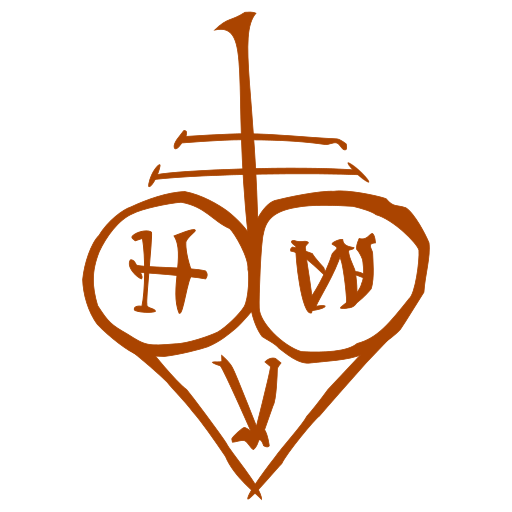
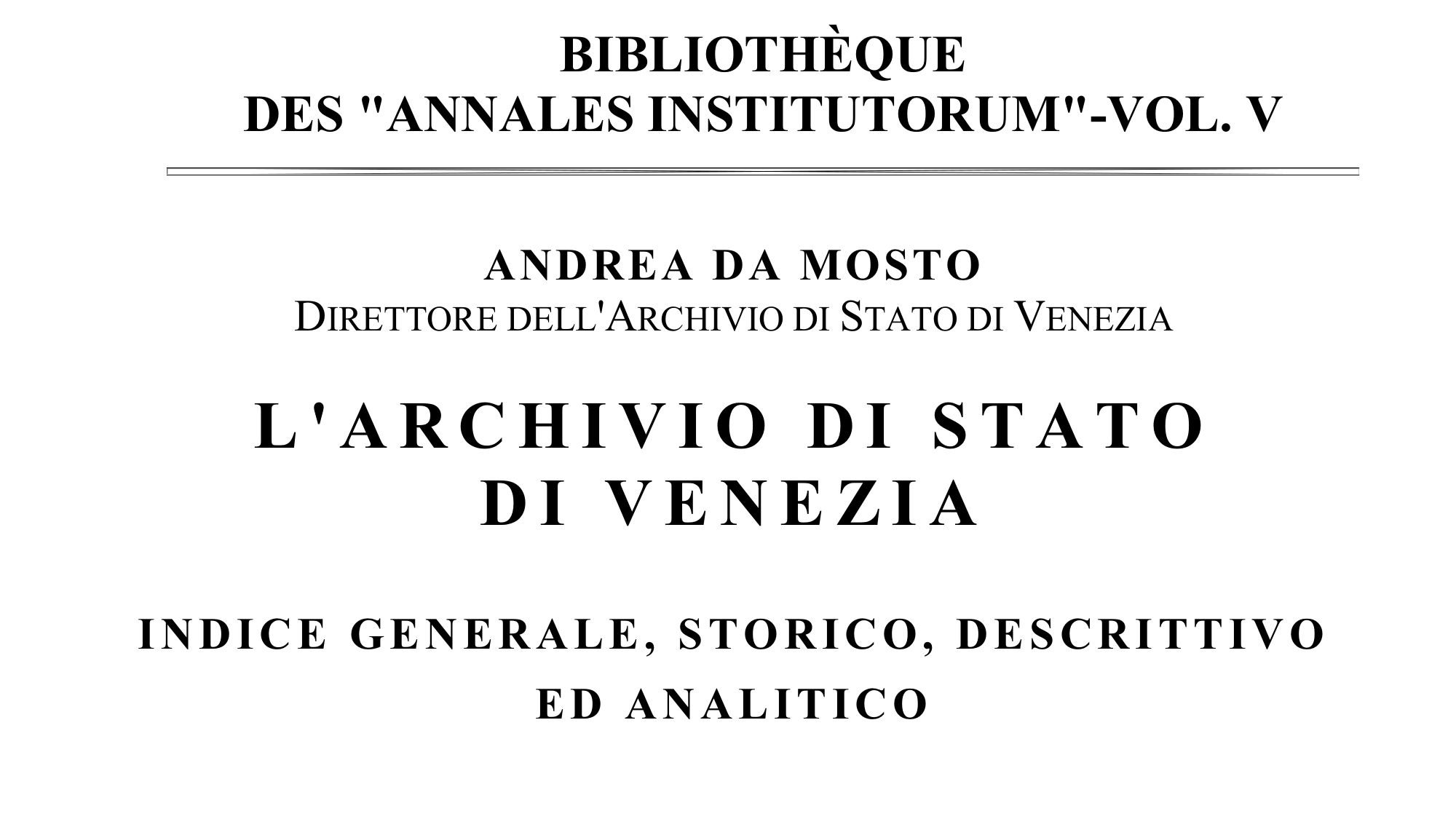
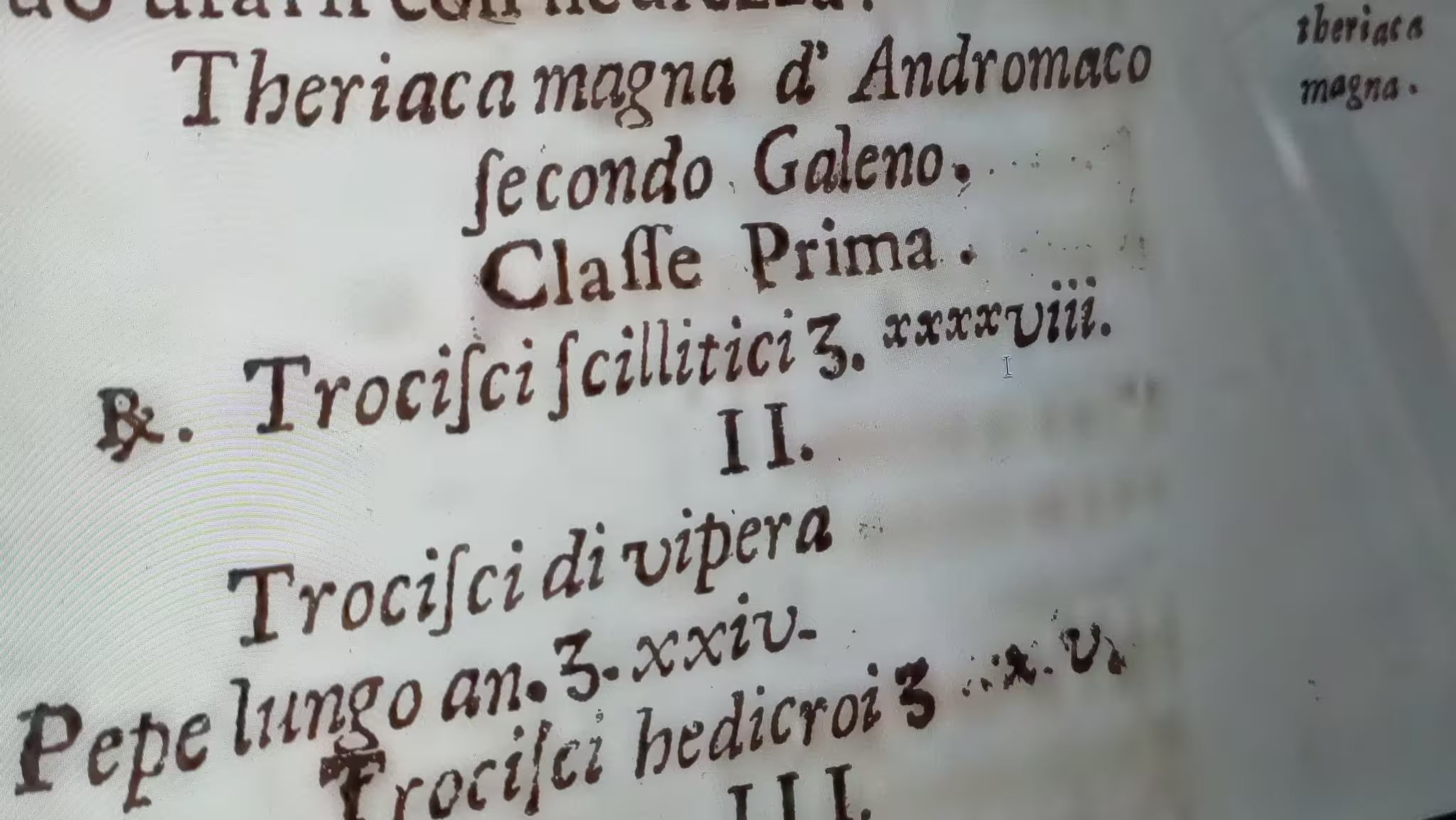
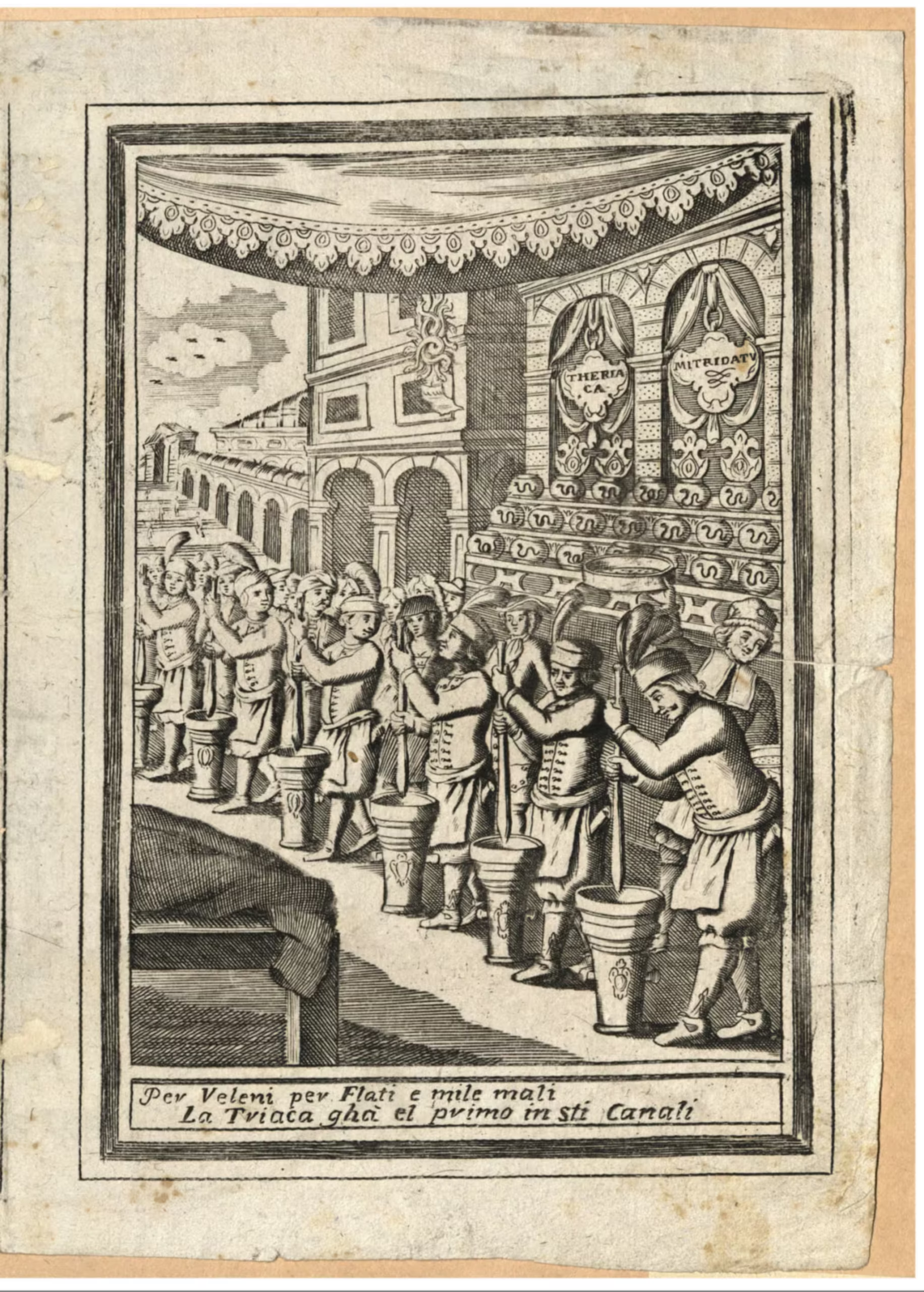
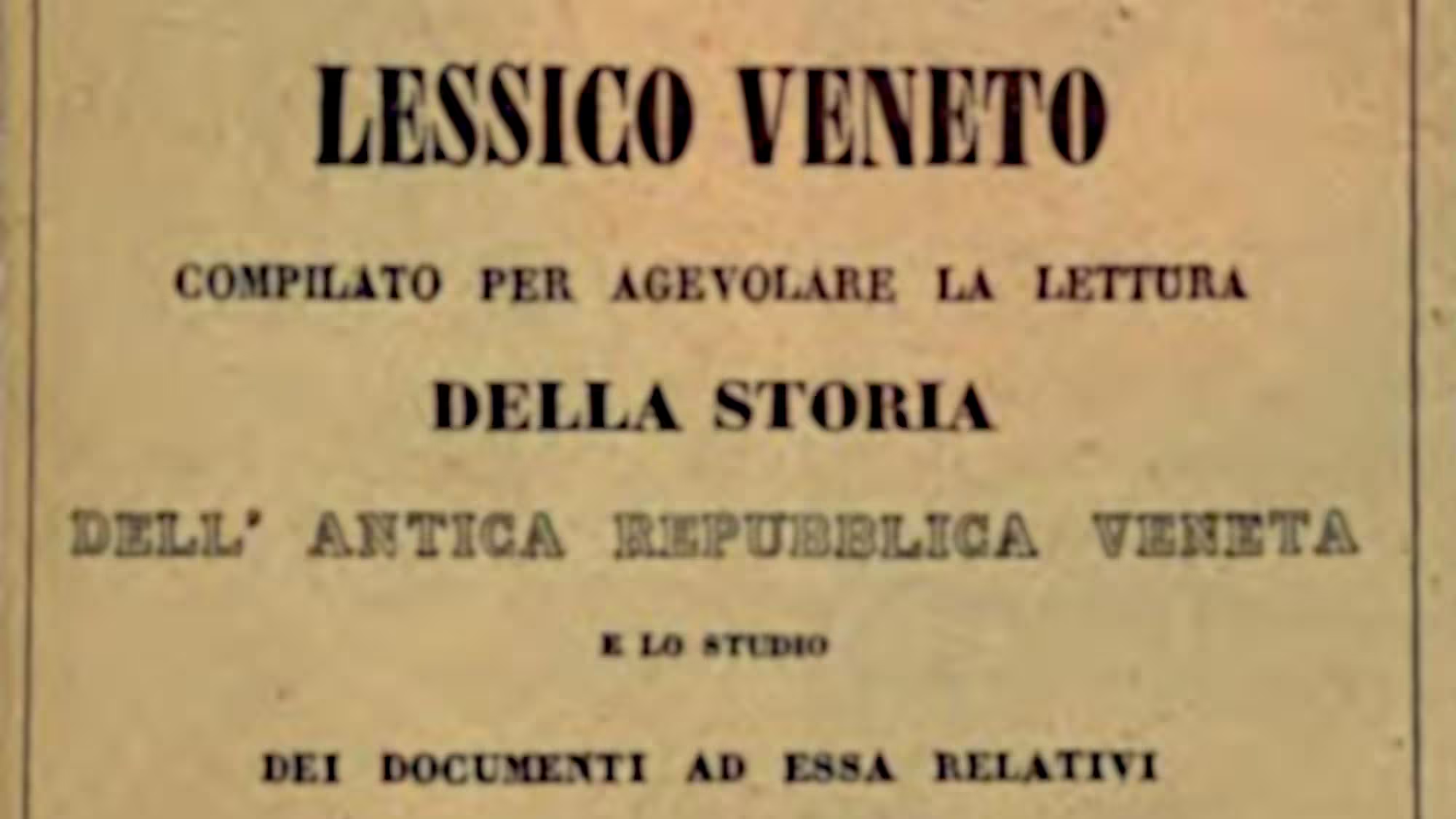
Leave a Reply